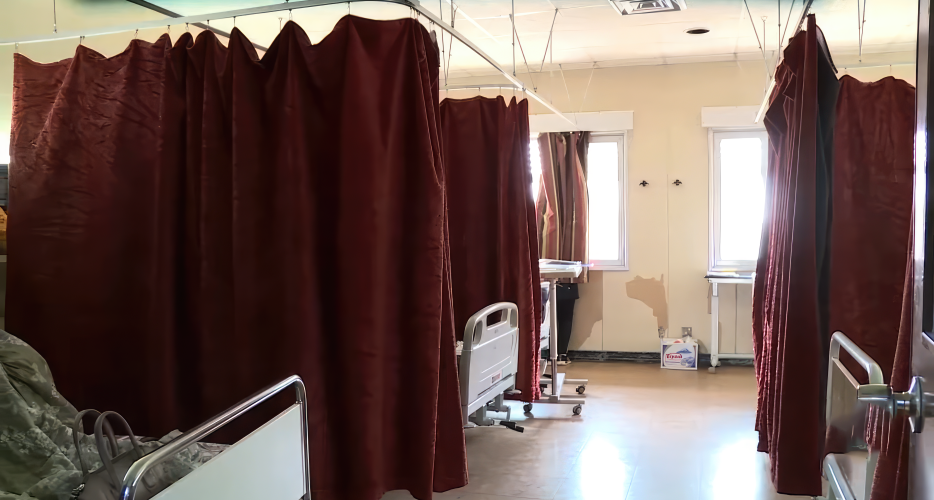
Peregraf- Ammar Aziz
Shirin has been traveling from city to city in search of cancer treatment for the last five years. She is unable to access care within easy reach of her home in Duhok governorate, which lacks a dedicated cancer treatment hospital.
“We are in a relatively good financial situation, so we often visit Erbil or other cities for treatment, or go abroad. But those who are in a worse financial situation cannot afford medicine or take out loans to do it,” said Shirin, who spoke on condition that Peregraf used a pseudonym to identify her. She is 45-years-old and lives in Bardarash..
"Cancer is not like other diseases. All the drugs are expensive and relatively difficult to find,” she told Peregraf, adding that treatment and drugs would be easier to come by if there was a cancer hospital in Duhok.
Unlike Erbil and Sulaimaniyah, Duhok does not have a standalone cancer hospital, though part of one local hospital is used for oncology.
According to the Kurdistan Regional Government’s (KRG)Ministry of Health, there were 1,434 new cancer patientsregistered in Duhok last year, out of a total of 9,610 across the Kurdistan Region. There were 4,304 new patients in Erbil and 3,323 in Sulaimaniyah. Overall, there are more than 71,000 people with cancer in the Kurdistan Region.
“We hope they build a cancer hospital in Duhok as soon as possible,” said Shirin. She questioned why the area is underserved compared with Erbil, which has two dedicated cancer hospitals, Nanakali and Razgari, and Sulaimaniyah, which has Hiwa Hospital.
Duhok’s General Director of Health Afrasiab Musa told Peregraf that two facilities will be provided for cancer patients in the governorate.
A 60-bed pediatric cancer department will be opened soon in Hevi Children's Hospital to treat the approximately 50 to 60 cases of childhood cancer diagnosed each year. Most of them are leukemia.
He added that a floor of the Goran Hospital in Duhok city’s Baroshki neighborhood is being renovated as a dedicated cancer ward and will open in November.
"The number of cancer patients in Duhok has increased from 1,016 since 2021,” Chakdar Ahmad, a blood specialist in Duhok, told Peregraf. The number in 2018 was between 700 and 800, he added.
“More than 90 percent of the medicines and supplies needed for cancer patients are provided to Duhok,” Ahmad said.
However, problems related to lack of treatment options are a persistent complaint from patients.
Duhok receives just 23 percent of the overall budget allocated by the KRG to cancer treatment, which Musa says is low relative to its population. He added that local authorities also have to manage the needs of tens of thousands of refugees and IDPs who live in cities and towns.
The governorate is the poorest in the Kurdistan Region and has a number of factors that make it a high-risk area for cancer, including poor management of factory waste and pollution in the air, water, and soil.
There are dozens of illegal oil refineries in Duhok, which produces half of the Kurdistan Region's crude oil.
Cancer is a growing concern in Iraq, with the number of cases diagnosed increasing each year. According to the Iraqi Ministry of Health, breast cancer is the most common type among women and prostate cancer is the most common type among men.
Ahmad explained that unhealthy eating, obesity, smoking,pollution, and lack of exercise are all causes of cancer. He encouraged people to get tested to ensure early detection and better treatment.